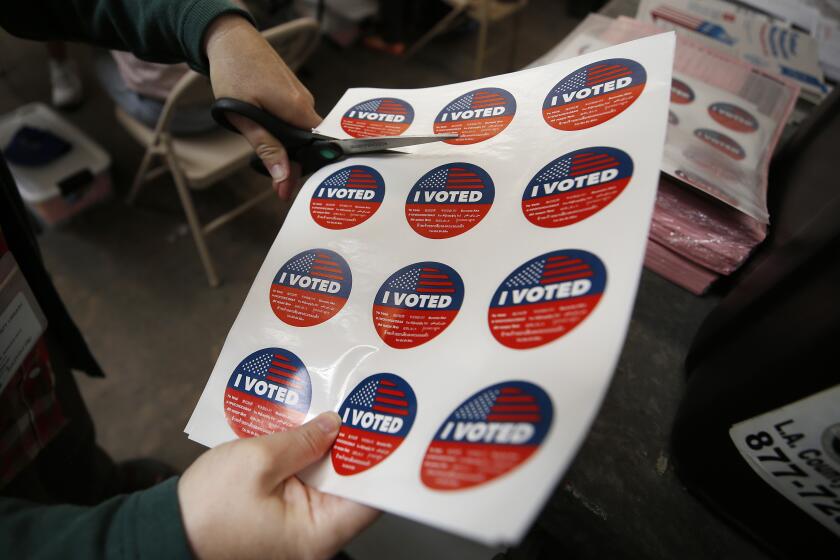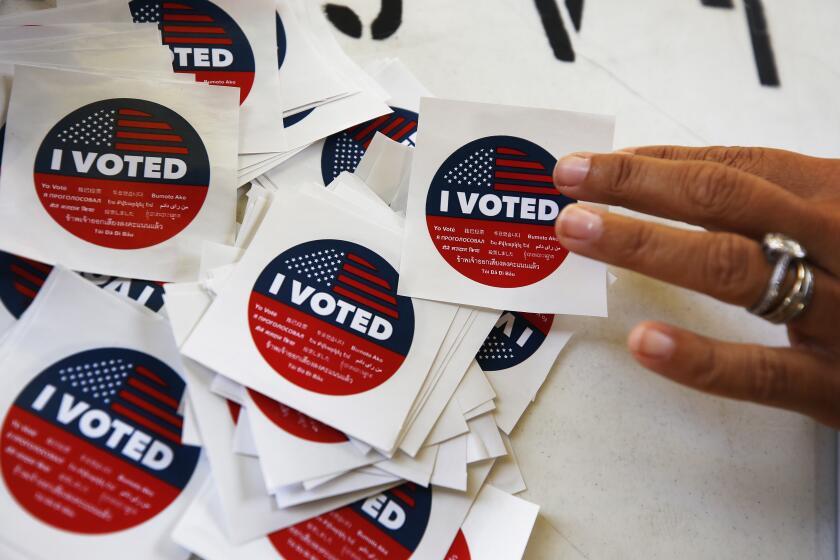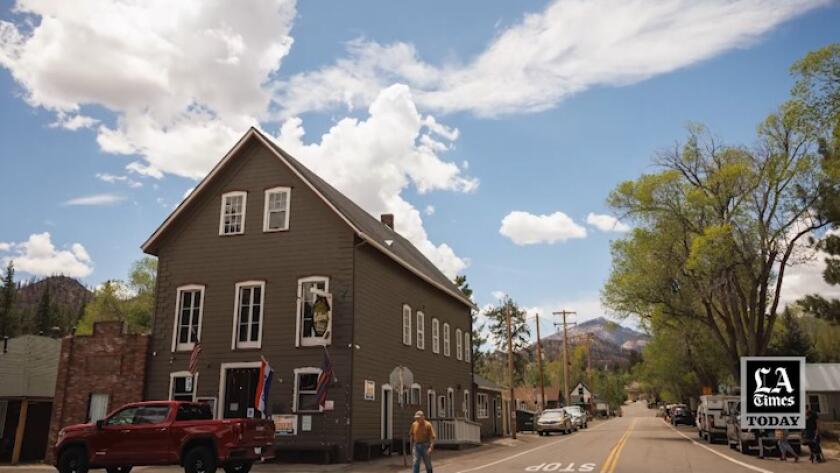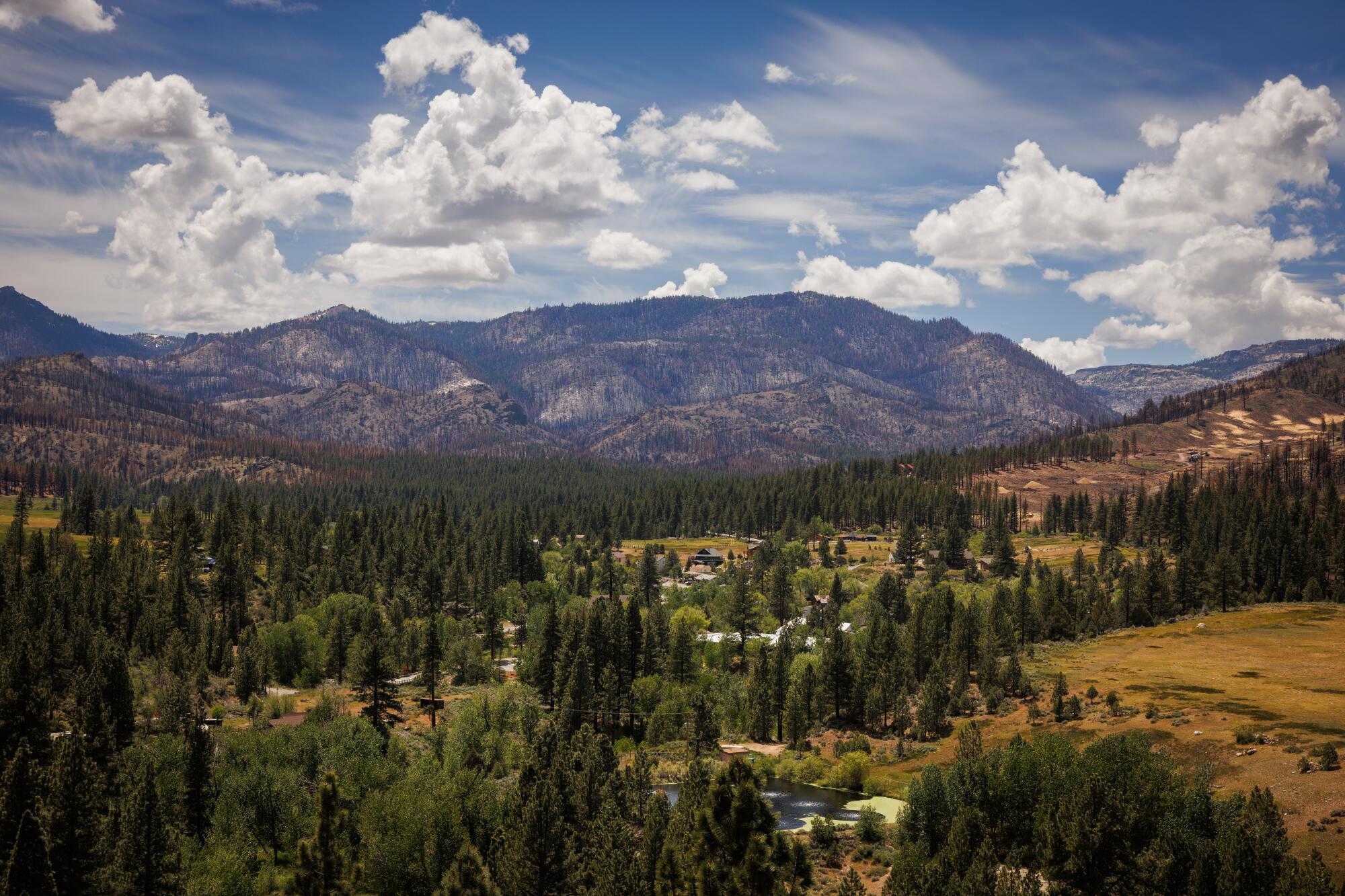
- Share via
MARKLEEVILLE, Calif. — Alpine County, perched like an emerald on the crest of the Sierra Nevada, is as rural as rural California gets.
Vast distance separates its sparse settlements, tucked among forests and crystalline streams. The views, unobstructed by city clutter, go on forever.
There is no hospital, no supermarket, fast-food restaurant or shopping mall anywhere in its 743 square miles. The only stoplight is temporary, put in place for a bridge repair.
And yet if all goes as expected in Tuesday’s primary election, Alpine County will vote along the same lines as Los Angeles, Sacramento, San Francisco and other urbanized blue bastions.
Rural usually means Republican. But Alpine County, set in the far eastern reaches of the state, is a notable exception — a Democratic speck bobbing alone in a sea of red.
Richard Harvey is one of those who gives the place its distinctive hue. Like many, he came from someplace else, moving here from Oakland as part of the 1970s back-to-nature movement.
“I was raised believing that helping people who have less is sort of an obligation for being a good citizen in this country,” the retired emergency room doctor said over the rush of Markleeville Creek, as it ran though this tiny county seat (population 275, give or take).
“The Democratic Party seemed to be the party that helped out people with less, more than the other options,” said Harvey, 78. “So I’ve been a Democrat since.”
California’s 2022 primary election is Tuesday. Here’s how to cast a ballot.
Alpine County is small, population-wise, but its political leaning poses a big mystery.
Is it liberals from the Bay Area choosing to cast their ballot from a second home? Is it the Democratic-leaning Native American community, which makes up a significant part of the population? Is it Democrats moving in and Republicans moving out as people seek to live among like-minded partisans?
All seem like plausible explanations.
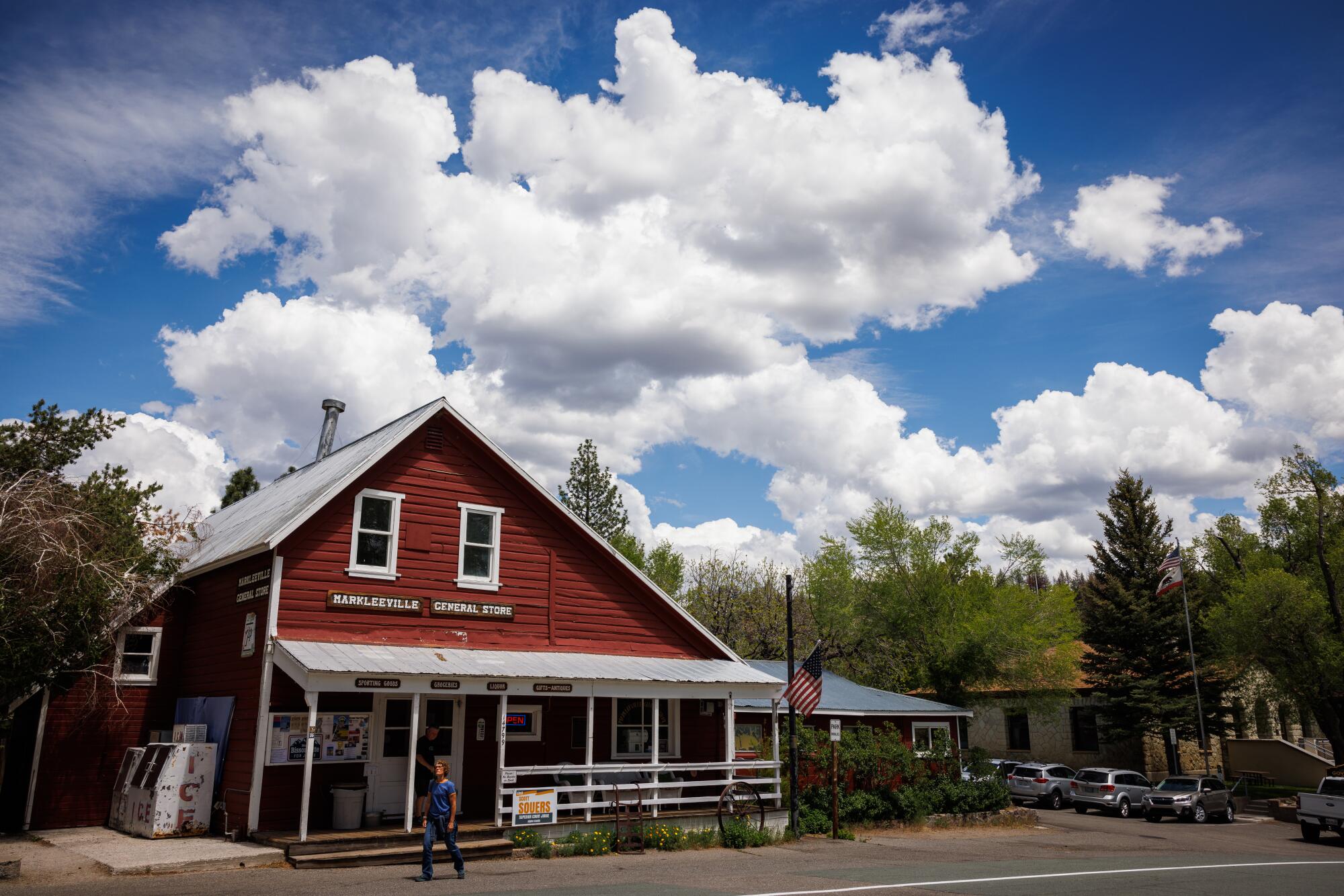
Alpine County has just 1,200 or so residents, which works out to about two people per square mile, the fewest of any county in California. There are 918 registered voters. (Los Angeles, by contrast, has thousands of voters per precinct.)
The sample size is small, but the pattern is clear.
Going back to 2000, when Republican George W. Bush narrowly beat Democrat Al Gore in the race for president, Alpine has consistently voted Democratic — and not by a little. Its voters rejected the recall of Gov. Gavin Newsom 61% to 39%, and in 2020 backed Joe Biden over Donald Trump 64% to 33%.
At the same time, Alpine’s rural neighbors Amador, Calaveras, El Dorado and Tuolumne counties voted just as consistently Republican, often by landslide margins.
(The exception was in 2006, when Gov. Arnold Schwarzenegger romped to reelection, carrying 52 of California’s 58 counties, including Alpine. Even then, Schwarzenegger won just 54% of the vote in Alpine, compared with 70% or more in those neighboring counties.)
So what explains it?
People smiled at the suggestion it’s something in the water, or pure mountain air.
But maybe that’s a part of it.
::
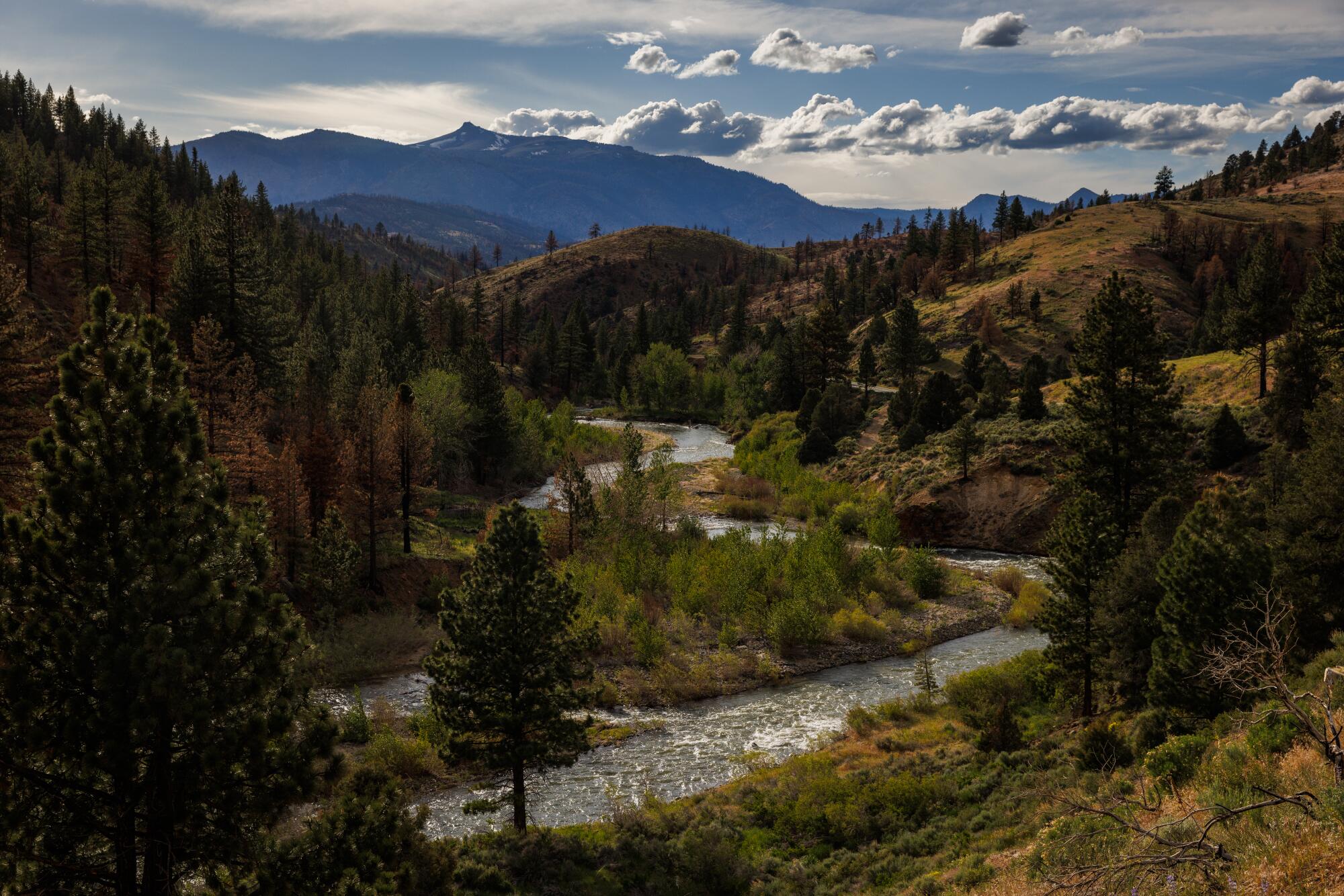
Natural beauty is Alpine County’s great gift and its main source of livelihood.
Pristine rivers flow between soaring granite walls and through endless carpets of green meadow. Juniper, aspen and ponderosa pine cover the hillsides, and snow-peaked mountains paint the vistas.
There is a feeling of time slowed down, a throwback to a less-frenzied era, which seems fitting for a place that boomed and busted well over a century ago. Little has changed since.
What’s the appeal of life with no bank, no chain store, no movie theater? Where it’s a 20-minute drive, or more, to get a haircut or Frappuccino?
“That’s the appeal,” said Dianna Mitzner, 70, a longtime Democratic activist who moved to Alpine County 20 years ago because it seemed like a better place to raise a child than the Hollywood Hills. “It’s the authenticity.”
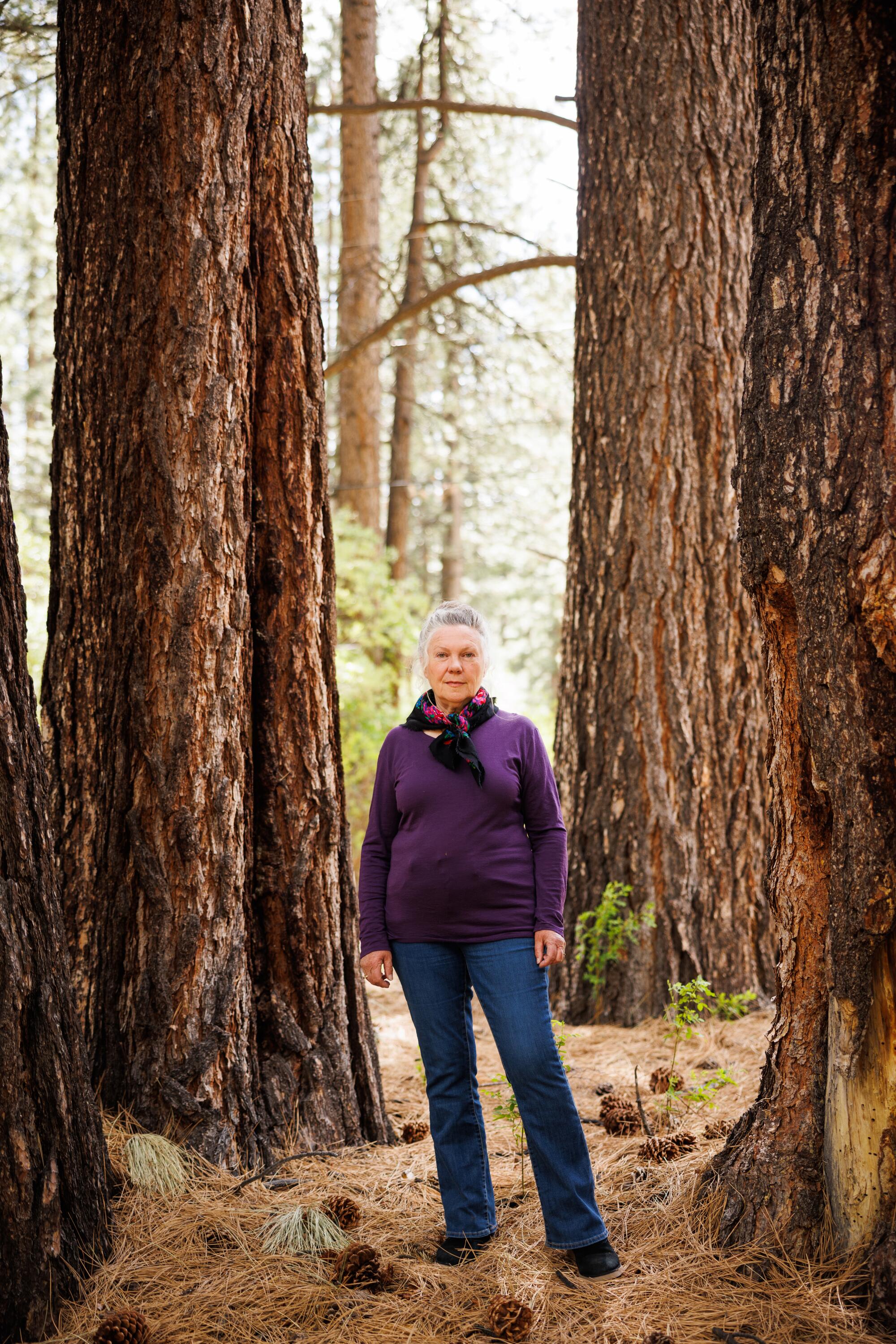
The Washoe people were the county’s original inhabitants. (About 400 members of the Hung-A-Lel-Ti community of the Washoe Tribe remain.) A silver strike in the 1860s brought a rush of white settlers, who saw the peaks and named the place after the Swiss Alps. In less than a decade, though, the mines were played out and the population quickly dwindled to a just few hundred.
There it stood for decades, until the 1960s, when the development of ski resorts at Kirkwood and Bear Valley brought an influx of residents and boosted tourism, which is pretty much the county’s only industry.
More than 95% of the land is national forest, which makes it a natural playground for fly fishers, backpackers, mountain bikers and rock climbers. It also keeps virtually all of the county off-limits to development.
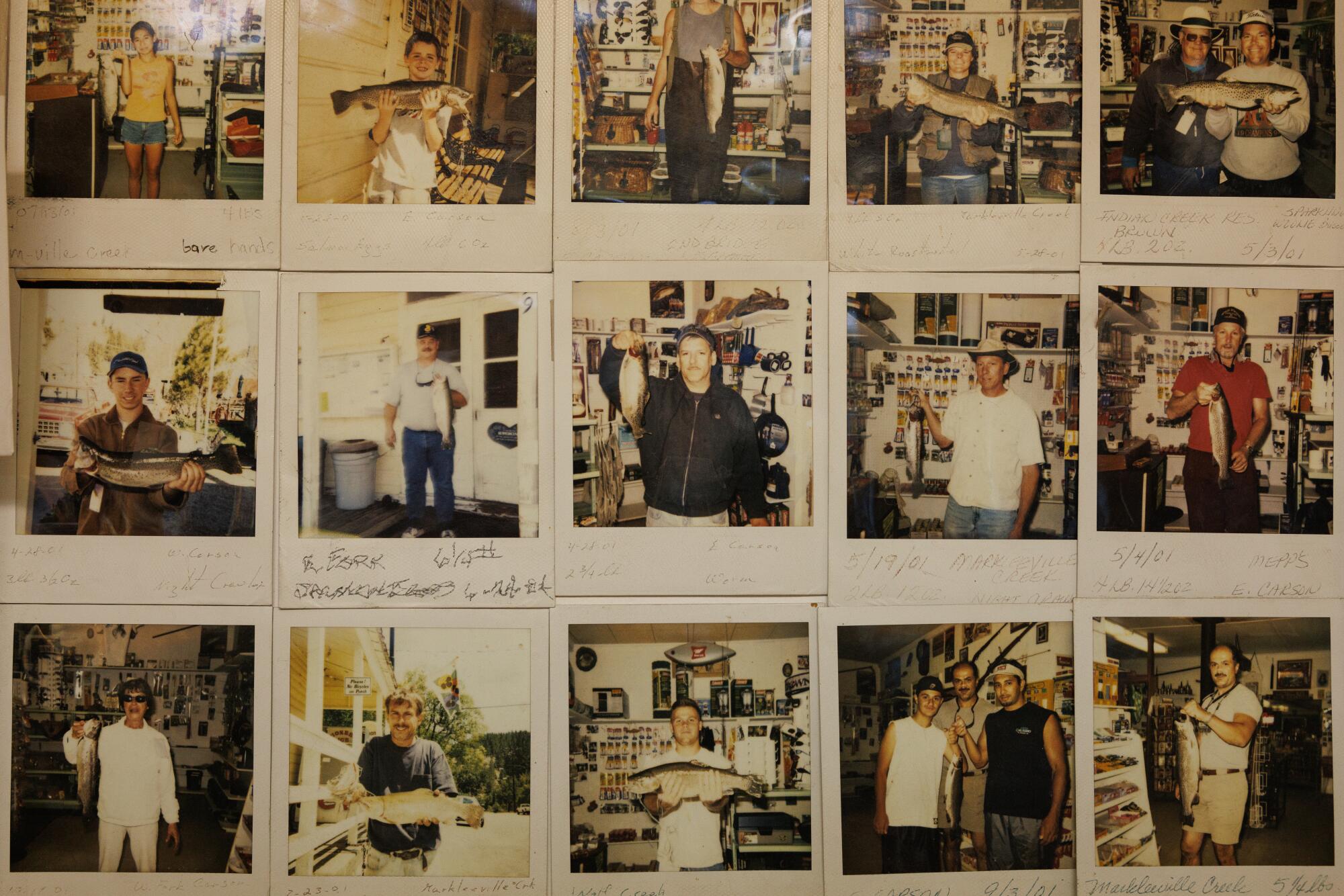
There is a bit of cattle ranching. There was once some logging. But that dried up long ago, just like the silver mines. So there was never the raging battle over natural resources that took place in other rural California counties, turning many residents against the Democratic Party and others foes derided as tree-huggers.
Maybe that’s another reason the party thrives. People come here because they cherish the unspoiled outdoors and want to keep it that way, and believe voting Democratic is the best way to do so.
Some of them may have stayed at Mitzner’s bed-and-breakfast in Woodfords (population 150) or at John Brissenden’s place just down the road.
Brissenden lived in Santa Cruz and worked for a time as a field representative for Democratic Rep. Leon Panetta. His wife, Patty, worked for Democratic Assemblyman Sam Farr. They passed through Alpine County in 1980 on their honeymoon and fell in love. The couple bought a collection of ramshackle cabins and turned it into a rustic resort.
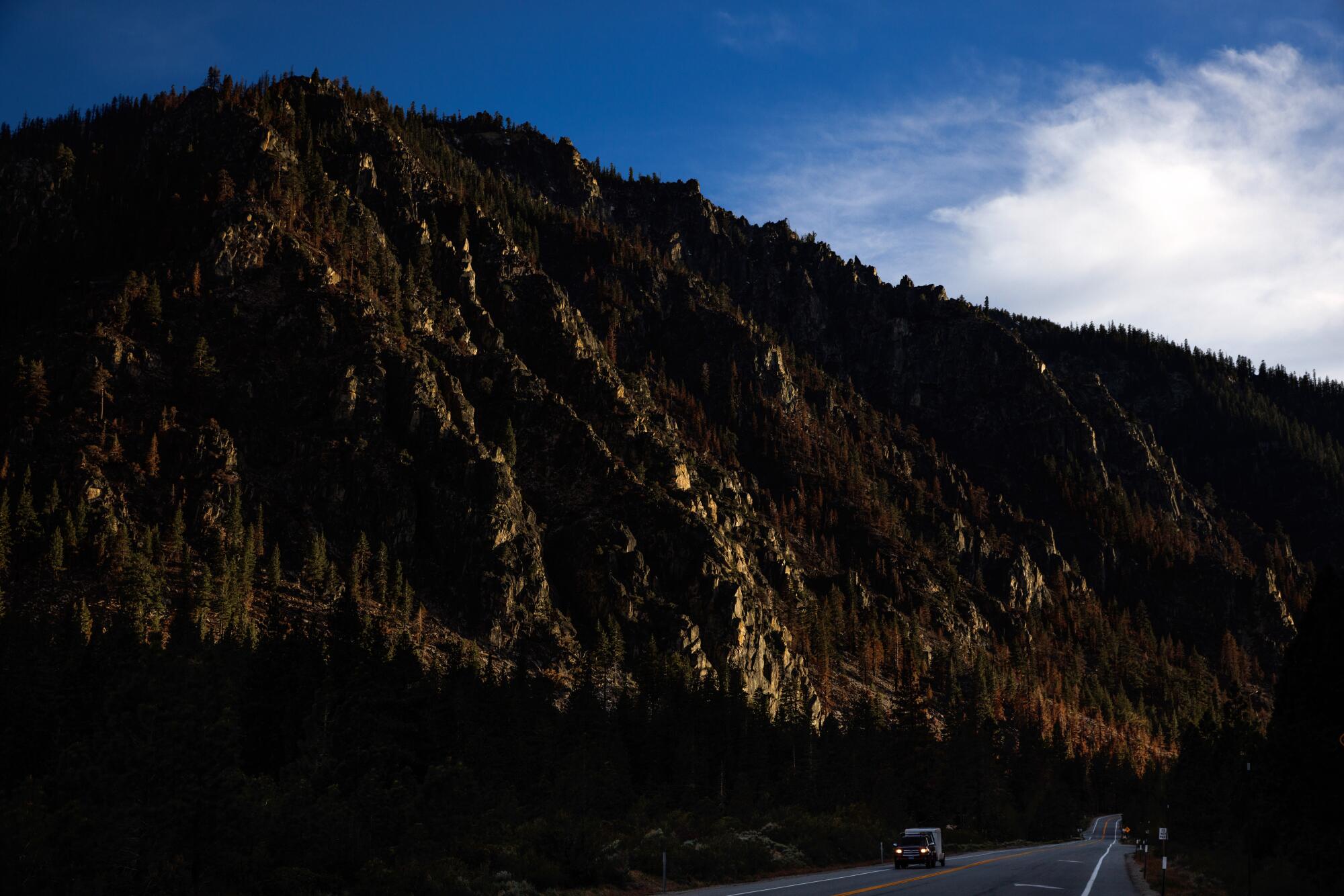
Now and then the hosts talked politics with their guests. Some liked what they heard — enough to move here once they retired. (More than a quarter of the county’s residents are 65 or older, compared with fewer than 15% statewide, which may account for its extraordinarily high voter turnout. The county is also whiter and more affluent than the state on average.)
With so few people, it didn’t take much beyond word of mouth to help turn Alpine from red to blue.
“There was a heartbeat of more liberal thought,” said Brissenden, 73, who sold the resort in 2019 but is still active in environmental politics. “And that attracted like-minded people who want to continue that legacy of preserving and protecting.”
::
Andy Lovell has a theory, which he shared over a plate of fried cheese curds at Cutthroat Brewing Co. (That’s cutthroat as in trout.)
The upscale saloon is one of fewer than a dozen businesses that make up downtown Markleeville, a two-minute stroll end-to-end along Highway 89. During the day, when traffic is heaviest, 20 minutes or more can pass between cars.
Lovell, 60, who works winters at Kirkwood and does a lot of volunteering year-round, believes Alpine County leans Democratic because people of a certain mindset — conservationist, socially liberal, OK with the federal government owning most of their surroundings — have come and stayed put.
Those who don’t agree need travel not terribly far down the road to make their home in Douglas County, Nev., one of the most conservative in that state.
“They can still come here and enjoy everything we have to offer — all the different recreational possibilities,” said Lovell, who settled in Markleeville 26 years ago when South Lake Tahoe grew too crowded and expensive.
“Why,” Lovell asked, “come to this small community that isn’t necessarily conservative in its values when right there they have people they feel more comfortable with?”
California’s 2022 primary election ballot includes races for governor, attorney general, the Legislature and Congress, as well as local contests.
It isn’t easy getting people in Alpine County to talk about politics, especially in these antagonistic times. Just about everyone knows everyone else. You’re sure to bump into familiar faces at the general store, the gas station, or a meeting of the school board or volunteer fire department. So it’s important to keep on good terms.
An ambulance can take 45 minutes to show up, said Bill Scherbak, “so your neighbor is going to be the first one to come to your aid. We depend on each other.”
Scherbak, 54, is a general contractor. His wife, Aimee Nitzberg, 51, is a yoga instructor who also works at the public library. They set up camp chairs in their big backyard and invited Harvey, the retired physician and a neighbor, to sit by Markleeville Creek and discuss why they’re Democrats.
They referred to the party’s stand on social issues, on cultural matters and helping those with less. Inevitably, the conversation came around to the stunning beauty, the clear water and pure mountain air around them.
“The environment is very important to me,” Scherbak said. “Protecting what we have and even trying to enhance it, to make it better.”
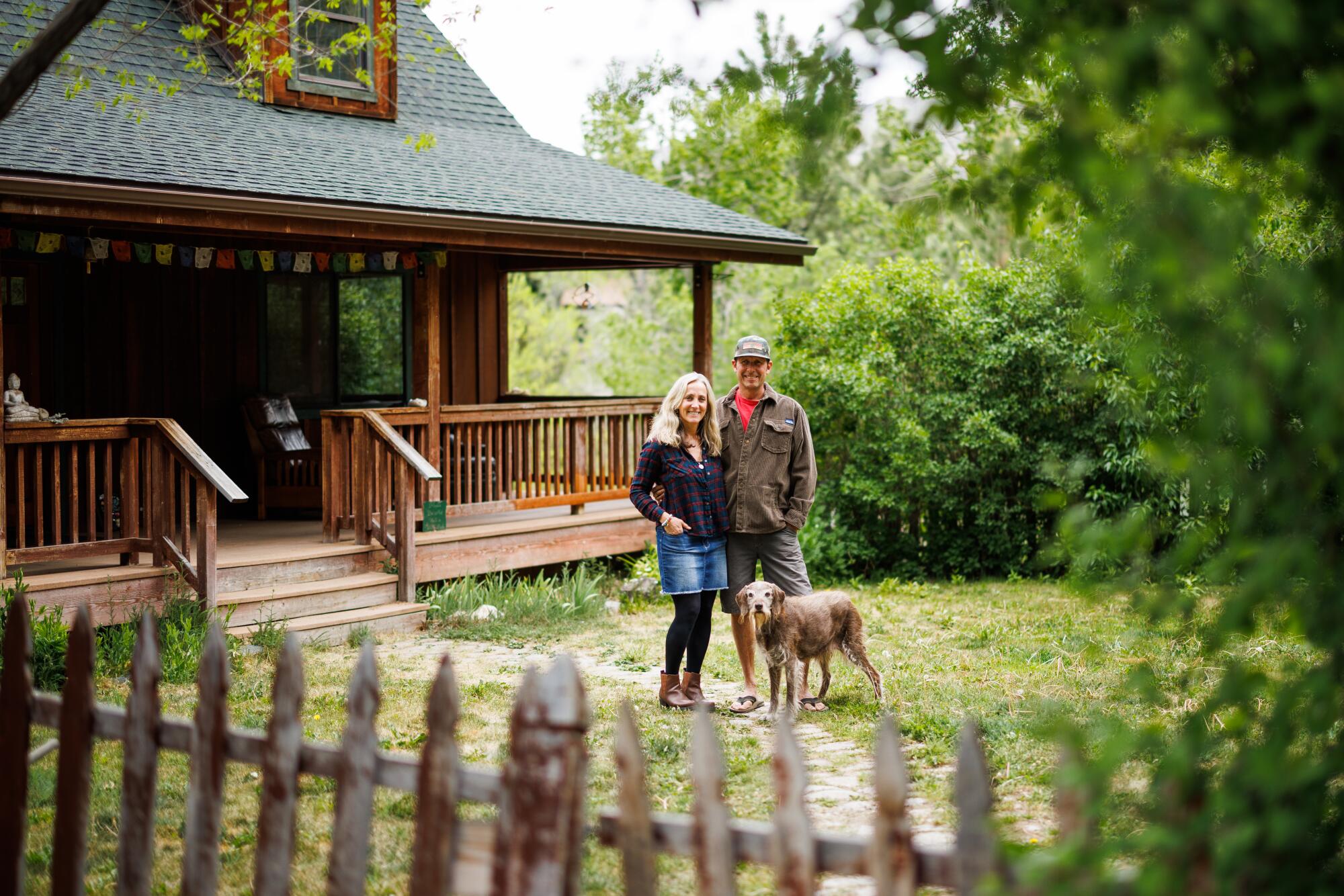
The Tamarack Fire nearly destroyed Markleeville last summer — residents were evacuated for two weeks — and much of the town is surrounded by sooty hillsides and trees turned to black matchsticks.
None of that was visible, however, beneath a canopy of green that sifted the day’s fading sunlight. Cici, the couple’s pudelpointer, sniffed around for a treat. The talk turned to wildflowers, hiking and great outdoor adventure. The creek rumbled steadily past.
Soon darkness fell and the stars put on their nightly show.
- Share via
Watch L.A. Times Today at 7 p.m. on Spectrum News 1 on Channel 1 or live stream on the Spectrum News App. Palos Verdes Peninsula and Orange County viewers can watch on Cox Systems on channel 99.
More to Read
Get the latest from Mark Z. Barabak
Focusing on politics out West, from the Golden Gate to the U.S. Capitol.
You may occasionally receive promotional content from the Los Angeles Times.

